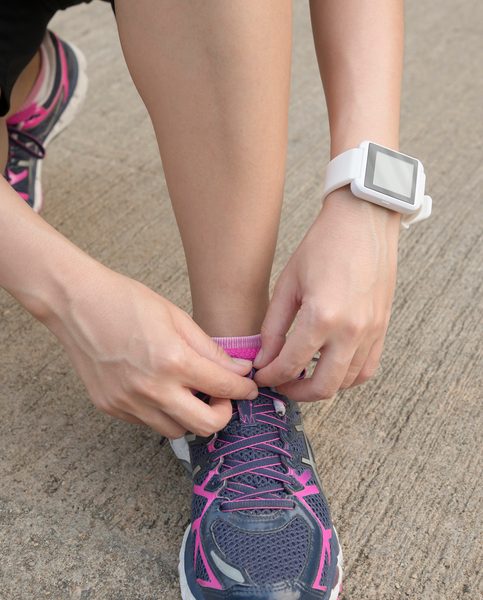If there was a FitBit or a Jawbone waiting for you under your Christmas tree this year, you’re not alone. There’s no doubt about it, wearables are big business, with an estimated 53 million sold worldwide in 2016. Although you may be jumping on the bandwagon, recent research has called the effectiveness of these devices into question, with some scientists suggesting that they actually have no benefit whatsoever on our overall health. We took a look at both sides of the debate…
-
Cons
UN-FITBIT
You might now be wondering if you’ve just spent a large portion of your pay cheque on what is essentially a piece of rubber jewellery, rather than something that will help improve your wellbeing. Scientists at the University of Pittsburgh certainly think so – in a weight loss study, they found that people who shed the most pounds were the ones who didn’t wear a tracker. This may be because users put too much faith in tech, thinking that it will get results without them having to actually put the effort in. “A major disadvantages of fitness trackers is that people expect too much from them,” says Lisa Cadmus-Betram of the University of Wisconsin. “The tracker cannot exercise for you, nor can it motivate an otherwise unmotivated person.”
UNTRUSTWORTHY?
Inaccuracy was a problem that was widely reported by the media, including the BBC and The Independent. Indiana’s Ball State University revealed that some brands are significantly over- and underestimating calories burned during certain physical activities. For example, the amount of energy used during walking was overstated by as much as 40 percent, while cycling was the worst activity recorded, with an under-calculation of up to 59 percent – enough discouragement for anyone.
THE DARK SIDE OF DIGITAL
After surveying 200 female FitBit users, academic website The Conversation found that some have an unhealthy relationship with their tracker. In fact, 79 percent reported feeling under pressure to reach their goals, while 30 percent viewed their device as an enemy that made them feel guilty for underachieving.
-
Pros
STAYING ON TRACK
But before you log off and list your tracker on Ebay, there are many upsides to the tech. “Fitness trackers combine the key ingredients for motivating people to reach their health goals,” says Lisa. “These include self-monitoring, setting goals and social support.” As you can see, this puts the focus on you putting in the effort and using the tracker as a tool to help you achieve that, rather than it doing the work for you. That’s why it’s vital to approach a fitness band with the right mindset, as Kieran Alger of technology website Wareable explains: “It’s not a replacement for your own desire to succeed. If you accept that the hard work and habit changing is still down to you, you’ll have more success.”
ACHIEVABLE GOALS
Fitness wearables record every piece of data about your workout, tracking your progress in a way that logs and diaries simply can’t. “When you can see all of those things, especially your progress, it motivates you to keep building on what you’ve accomplished,” says Linda Arslanian, a physical therapist at Brigham and Women’s Hospital in the US. If the novelty of your device is waning, try treating yourself to a physical reward, such as a new pair of leggings or a massage, every time you reach a target to ensure you keep working hard. Yes, we’re giving you permission to shop!
#FITSPIRATION
While fitness trackers may not be completely accurate, their inspiring effect on users is second to none. “My clients use them as an excuse to walk a few extra blocks, go for a water break, take the stairs and in other situations where you would often pass on physical exercise,” says personal trainer Matt Townsend. “Fitness bands can help you find a way to sneak in cardio while also lowering stress levels and raising energy.”
-
The result In spite of the negatives, we think that trackers are worth the money if you use them in the right way and don’t expect the impossible from them – they are there to keep you motivated, monitor your progress and help you to remember to keep moving, not to do the work for you (maybe just take the calorie figures with a pinch of salt, though). Happy tracking!



















